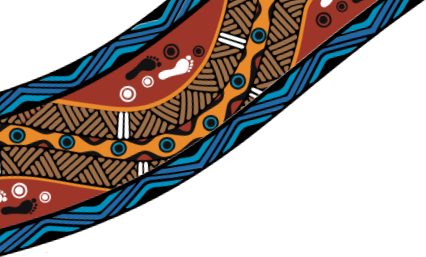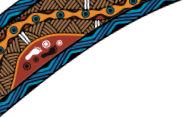These questions were submitted as part of the feedback process on the proposed Representative Body model, in late 2018.
What happens to Traditional Owners who are not associated with a Traditional Owners Corporation. How do they have a voice?
We’re hearing this question repeatedly. And we know it’s really important.
If you’re not associated with a T.O Corporation, you still have a voice.
Under the proposed model, as a traditional owner, you can run as a candidate. And if you decide not to run, you can vote for whichever candidate you want.
In this way, the model we’re proposing makes sure every Aboriginal person in Victoria is able to have their say.
If I live within the City of Melbourne boundaries, which TO group will my vote will go to?
If you’re in the Melbourne CBD, under the proposed model you'd be able to vote in an electorate covering northern metropolitan Melbourne.
Your vote will not be going to any Traditional Owner group. Rather, you’ll be voting for an individual candidate.
It’s important to know that voting regions are not treaty regions or traditional boundaries.
The only purpose of the voting regions is to make sure there’s a diverse range of voices on the Representative Body.
If you’re also part of a Traditional Owner Corporation, you can work within its structures to help determine who takes its reserved seat on the Representative Body.
Who is the Representative Body answerable to?
It’s a simple answer - you!
The Representative Body will be accountable to Aboriginal people in Victoria. If you feel the representatives aren’t doing a good job, you will have the chance to vote for someone else.
Elders will also play a major role, by acting as a cultural authority within the Representative Body. They will make sure it does business our way. The Commission is establishing the Elders voice as part of its work to set up the Representative Body, and will meet with Elders groups in the New Year.
What is the time frame for the Representative Body to set the 'ground rules' or Treaty Negotiation Framework?
There is no deadline for the negotiation framework (or ground rules) to be agreed by the Representative Body and State of Victoria.
This helps make sure the Representative Body can take as much time as needed to make decisions. If timeframes are imposed, it could undercut the Representative Body’s strength and independence.
Which groups will have reserved seats?
Under our proposal formally recognised Traditional Owner Corporations would be entitled to reserved seats.
This means a group recognised:
- As a Registered Aboriginal Party
- As having Native Title over an area
- As having an agreement under the Traditional Owner Settlement Act
Our proposed model is flexible, so if another group achieves formal recognition, they get a reserved seat.
Is there going to be an Elders’ council to guide our mob through this treaty process? They are our knowledge keepers, our matriarch and patriarchs, and they need to have a seat at this table!
You can be confident that Elders will be central to the treaties process. Their wisdom, judgement and cultural authority will be embedded in it. This will make the process stronger.
The details are yet to be worked out. The Commission held an event with Elders from across Victoria in Melbourne in September. After discussions at that event, the Commission committed to more consultations with Elders across the state about how to best embed their voice within the Representative Body.
This will start early in 2019. If you’d like to suggest a group of Elders we should speak to, please get in touch.
How will Aboriginality be affirmed by voters for the Representative Body?
We will use the ‘3-pronged’ test used in most Australian legislation and policy.
That means an Aboriginal or Torres Strait Islander is a person who is:
- of Aboriginal or Torres Strait Islander descent
- identifies as an Aboriginal or Torres Strait Islander and
- accepted as such by the community in which they live
This definition allows self-identification to form the basis of the definition, balanced with acceptance in the Aboriginal community.
This respects Article 33(1) of the United Nations Declaration on the Rights of Indigenous Peoples (UNDRIP).
Who decides on the final model?
The final Representative Body model will be determined by the Commission, based on three years of consultation, including feedback on the proposed model released at the Statewide Gathering in September 2018.
Given the Commission’s role is to set up the Representative Body in 2019, we will review and analyse the feedback efficiently. We will release a final model in a timeframe to allow Representative Body elections mid-year.
If you have a criminal record, because you were removed, can you sit on the Rep Body?
To be eligible to run for the representative body you must be eligible to be a director of a company.
People convicted of certain crimes may be disqualified from being a director for a period of time, if the crime is related to management of a corporation or fraud.
These types of crimes will not capture historic offences relating to removal. The Commission supports the Victorian Governments current work to correct police records that list child removals as criminal offences.
All Victorian traditional owners are eligible to run as candidates.


